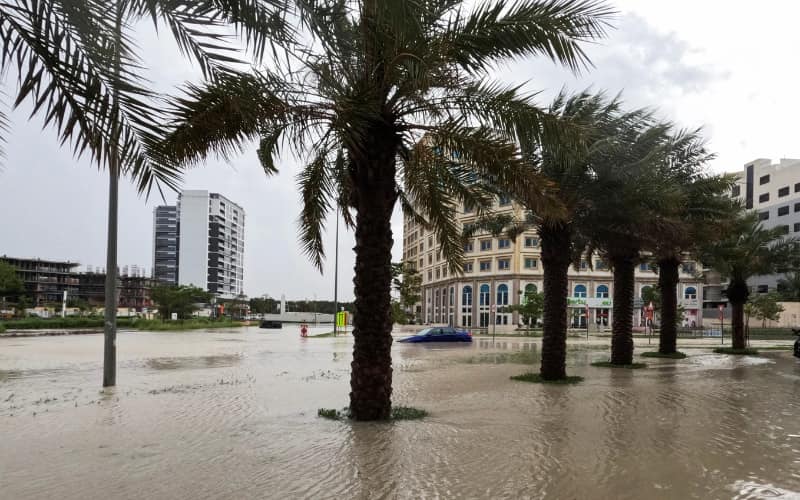How global warming is influencing weather patterns and increasing flood risks
Recent flooding in the UAE starkly illustrates the broader impacts of climate change on weather patterns, highlighting a growing global concern. Climate change, primarily driven by the burning of fossil fuels, has created an atmosphere that is warmer, wetter, and more energetic. This altered atmosphere significantly increases flood risks by enabling the air to hold more moisture—approximately 7% more for each degree of warming. Consequently, this excess moisture often results in short, intense downpours, leading to an increased likelihood of flash flooding.
These atmospheric changes also infuse weather systems with more energy, which can lead to more severe and frequent storms capable of producing intense rainfall. Such conditions have contributed to the recent severe flooding experienced across the UAE, signaling a pressing need for comprehensive strategies to mitigate these risks.
Photo credit: Climate Council ORG
Health impacts and infrastructure vulnerabilities
The health impacts of such severe weather events are profound and multifaceted. Heavy rainfall and flooding can contaminate water supplies, increase the prevalence of mosquito-borne diseases like Dengue and Ross River virus, and exacerbate psychological stress within communities. Additionally, floods can devastate critical infrastructure, impacting power transmission and generation, which in turn affects access to essential services like refrigeration and the internet. This disruption poses further risks to water quality and availability, threatening water security and public health.
Taking Action: What UAE residents can do to fight climate change
As residents of the UAE, and of this planet, we play a crucial role in combating climate change. By reducing energy consumption, shifting to renewable energy sources, and supporting sustainable urban planning, we can help lessen our environmental impact. Promoting robust infrastructure planning to withstand these new climate realities is also critical. Every effort counts, from choosing public transportation to advocating for policies that aim to reduce carbon emissions. Together, we can work towards a safer, more resilient environment for future generations.


